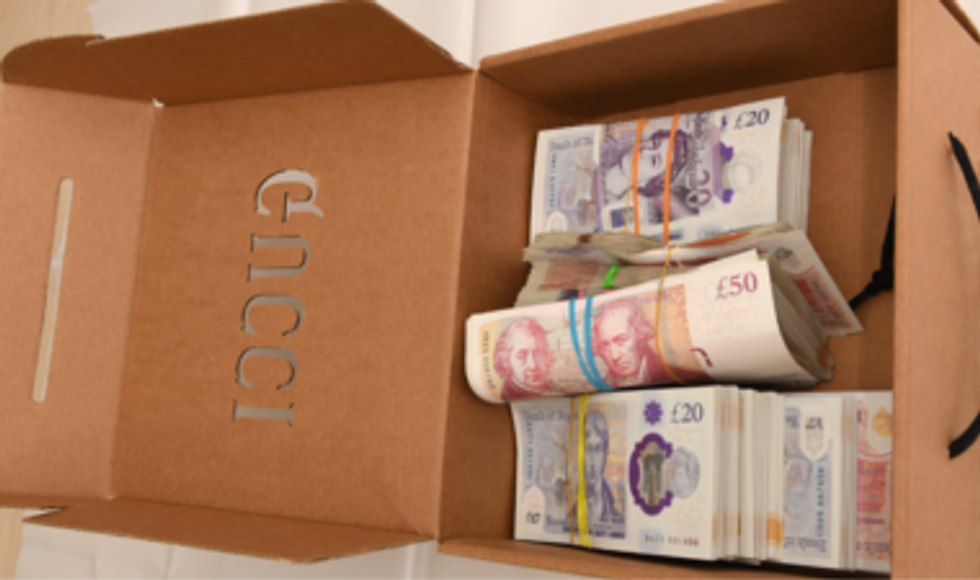AN organised crime group involved in money laundering, drug trafficking, and attempted fraud has been dismantled after a two-year investigation by the National Crime Agency (NCA).
Rickinder Hare, 36, and Neelen Balarajah, 34, received sentences totalling 14 years and six months for their roles in money laundering and conspiracy to supply class A drugs.
The operation culminated in significant seizures, including £1.2 million in cash and £350,000 in assets, a statement said.
The investigation began in January 2022 when NCA officers observed Balarajah receiving a 'Gucci' embossed box containing over £20,000 in cash from Hitesh Vadolia.
Balarajah's attempt to flee led to a dramatic confrontation, with officers using an unmarked vehicle to prevent his escape. Further probing linked Hare, of William Street, Knightsbridge, to orchestrating the exchange, leading to his arrest in July 2022.

A search of Balarajah’s residence in Pinner, Middlesex, uncovered substantial amounts of cash, herbal cannabis, cocaine, and cocaine-tainted wrappings.
Detailed telecoms data analysis and surveillance unveiled a broader network involving cash couriers and scrap metal dealers used for laundering money. Co-ordinated actions by the British Transport Police, HMRC, and the Environment Agency targeted these criminal operations.
The crime group also attempted to fraudulently secure government grants, intending to divert the funds to other illegal activities.
The NCA's investigations confirmed their incapacity to legally manage the waste removal projects they claimed to undertake.
Vadolia, the cash courier, faced multiple money laundering charges amounting to £270,000 but died before his trial. Balarajah pleaded guilty in February, with incriminating phone images confirming his involvement in cocaine distribution. He was sentenced to 13 years and six months on Monday (15).
Hare was found guilty of money laundering on 12 February, and received a suspended sentence of one year and 400 hours of community service on 6 June.
Jason Hulme, senior manager for the NCA’s International Corruption Unit, said, “This crime group had tentacles reaching into many different activities, and were making millions from drugs and money laundering.
“The direct threat posed to the public, and the public purse, has been prevented, but our investigation has identified a number of individuals closely linked to the group, as well as connections to politically exposed individuals overseas.
“We will continue investigating to determine if any of these were associated with their criminal activity.”





